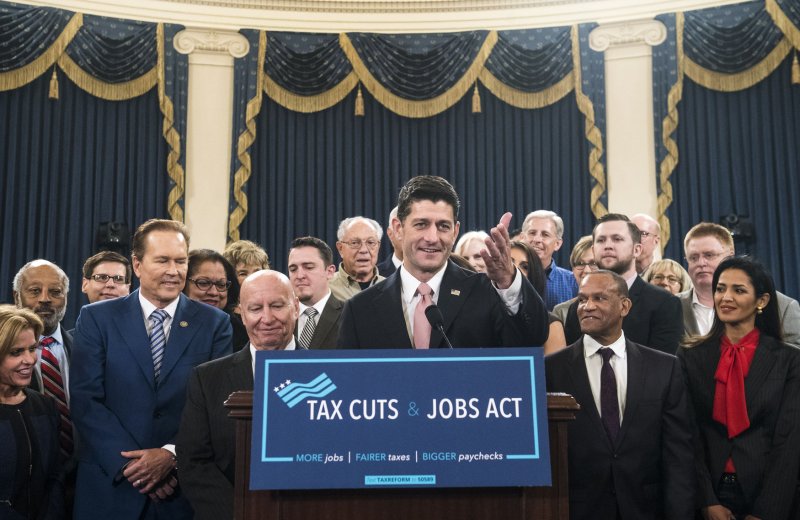The Tax Cut and Jobs Act, unveiled by House Republicans on Thursday, would eliminate a number of "special interest deductions," including the student loan interest tax deduction which was claimed by 12 million in 2015. Photo by Kevin Dietsch/UPI |
License Photo
Nov. 3 (UPI) -- House Republicans' new tax bill would eliminate a number of "special interest deductions," including a break for Americans with student debt.
The Tax Cut and Jobs Act, unveiled on Thursday, would eliminate deductions such as the student loan interest tax deduction to fund tax cuts.
More than 12 million borrowers included a student loan interest deduction on their Form 1040 in 2015, according to the Internal Revenue Service. People eligible for the student loan interest deduction can claim up to $2,500 of what they paid toward the interest on their student loans, but not the principal.
It is an "above-the-line" deduction on Form 1040 that directly reduces taxable income and doesn't need to be itemized to be claimed.
The student loan interest deduction is only available to singles with a modified adjusted gross income (MAGI) of less than $80,000 or $160,000 for married couples filing jointly. It begins phasing out for single individuals with a MAGI of $65,000 or $130,000 for couples.
Loan repayment schedules also affect the deduction's value, as graduates typically receive a six-month grace period before student loan repayment begin.
Value is decreased until the first year following graduation, but continues to decrease in subsequent years as more payments go toward principal than interest. Claiming the full $2,500 would result in a $625 reduced tax liability, but most see a smaller benefit, closer to $275 for someone in the 25 percent tax bracket.
Borrowers who recently completed graduate school or undergraduates with significantly above average student debt and income below the phase-out barrier are most likely to be affected by the elimination of the deduction.
If the federal student loan interest deduction is repealed, 37 states and the District of Columbia offer a similar state deduction.
The cost of the student loan interest deduction has more than doubled since 2007, costing the federal government $2 billion in foregone revenue in 2016.
It remains less costly than the American Opportunity Tax Credit, which would be preserved under the Tax Cut and Jobs Act, despite costing $18 billion in 2016.















